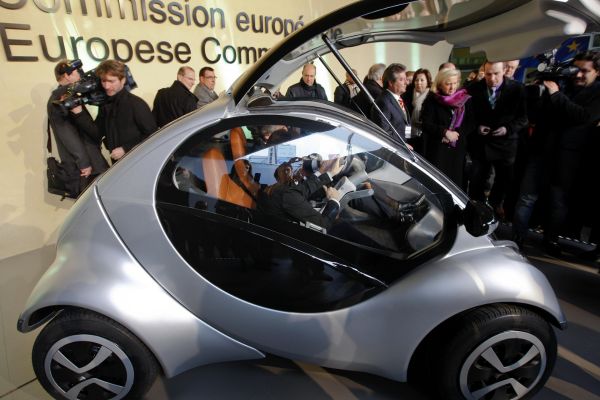The emergence of foldable electric vehicles (EVs) represents a significant advancement in urban mobility, offering compact, energy-efficient, and highly maneuverable transportation solutions. These vehicles are designed to address space constraints in crowded cities while promoting sustainable mobility. However, the engineering of foldable EVs presents unique challenges that require cutting-edge innovations in materials, structural design, energy storage, and safety mechanisms. According to the Consegic Business Intelligence report, Foldable Electric Vehicle Market size is estimated to reach over USD 19,310.52 Million by 2032 from a value of USD 9,167.54 Million in 2024 and is projected to grow by USD 9,898.94 Million in 2025, growing at a CAGR of 9.8% from 2025 to 2032.
Structural Integrity and Durability:
One of the primary challenges in foldable EV design is maintaining structural integrity while allowing for a collapsible framework. Traditional vehicles rely on rigid chassis designs to ensure occupant safety and vehicle durability. In contrast, foldable EVs must incorporate lightweight, high-strength materials such as carbon fibre composites, aluminium alloys, and advanced polymer reinforcements to withstand mechanical stresses during folding and unfolding.
Energy Storage and Power Management:
The compact nature of foldable EVs limits battery size, posing challenges in energy storage capacity and power management. Engineers must develop high-density lithium-ion or solid-state batteries that provide adequate range while remaining lightweight. Additionally, fast-charging capabilities and intelligent energy management systems help optimize battery life and improve overall efficiency.
Folding Mechanism and Automation:
A reliable and efficient folding mechanism is crucial for the practicality of these vehicles. This requires the integration of precision-engineered hinges, actuators, and locking systems that ensure smooth transitions between folded and unfolded states. Advanced electromechanical actuators combined with AI-driven automation allow for seamless operation, improving user convenience and safety.
Safety and Crashworthiness:
Ensuring the safety of passengers in a foldable EV is a significant engineering challenge. These vehicles must meet stringent crash safety standards despite their compact and lightweight designs. Innovations such as energy-absorbing materials, reinforced crumple zones, and deployable safety structures help mitigate the impact of collisions. Additionally, integrating active safety technologies, including collision detection, emergency braking, and stability control, further enhances occupant protection.
Smart Connectivity and Urban Integration:
Foldable EVs are designed for urban environments, requiring advanced connectivity features to enhance usability. IoT-enabled systems allow users to control vehicle functions remotely, monitor battery health, and access shared mobility platforms. Integration with smart city infrastructure, including automated parking solutions and charging networks, further enhances the practicality of foldable EVs in dense metropolitan areas.
Future Prospects and Market Adoption:
As urbanization accelerates, the demand for space-efficient and eco-friendly transportation solutions will continue to grow. Advancements in autonomous driving capabilities, wireless charging, and AI-assisted navigation will further refine foldable EV technology. Continued investment in lightweight materials, battery innovations, and intelligent mobility systems will drive wider adoption, making foldable EVs a mainstream solution for modern urban commuting.
Conclusion:
The development of foldable electric vehicles presents a unique set of engineering challenges that require a multidisciplinary approach. By leveraging breakthroughs in materials science, battery technology, automation, and safety systems, engineers can create practical, efficient, and secure foldable EVs. As technology advances, these vehicles will play a crucial role in shaping the future of urban mobility, offering a compelling alternative to traditional transportation options while addressing the challenges of space, sustainability, and efficiency.
Source: Foldable Electric Vehicle Market

















